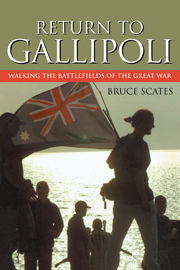Book contents
- Frontmatter
- Contents
- List of illustrations
- Note on money, measurement and terminology
- List of abbreviations
- Acknowledgments
- Introduction: journeys into history
- Part I Loss, Memory, Desire
- Part II Family Journeys
- 3 In foreign fields: the first family pilgrimages
- 4 ‘Sacred places’: family pilgrimage today
- Part III Soldiers' Tales
- Part IV Testament of Youth
- Conclusion: journey's end
- Epilogue: The ghost of memory
- Notes
- Survey Informants
- Index
4 - ‘Sacred places’: family pilgrimage today
Published online by Cambridge University Press: 22 September 2009
- Frontmatter
- Contents
- List of illustrations
- Note on money, measurement and terminology
- List of abbreviations
- Acknowledgments
- Introduction: journeys into history
- Part I Loss, Memory, Desire
- Part II Family Journeys
- 3 In foreign fields: the first family pilgrimages
- 4 ‘Sacred places’: family pilgrimage today
- Part III Soldiers' Tales
- Part IV Testament of Youth
- Conclusion: journey's end
- Epilogue: The ghost of memory
- Notes
- Survey Informants
- Index
Summary
At the age of eleven, Alex accompanied her family on a War Memorial tour of the Gallipoli Peninsula. Daily she observed her mother quietly weeping, her father grim and silent, her brother strangely distant. And day after day, Alex walked across a landscape charged with grief and stories. ‘It was such a beautiful place’, she told me, ‘but we all got so upset there’. The full effect Gallipoli had on Alex was only really apparent on her return to Australia. Invited by her school to write a story of her travels, she focused on an old man's pilgrimage to find where his father fought.
All his life, James knew he needed to make a journey. It was a journey that would take him far from home and use up his life's savings. Now, at the age of 65, he has made a decision to retrace his father's footsteps – to walk the battlefields where his father [also named James] had fought as a boy of 17. Shortly before Anzac Day he set off with the diary which his father kept throughout the First World War …
Alex was retracing James's steps across the Peninsula as surely as James retraced his father's. With a child's attention to detail, she recorded the colours and sensations of ‘the journey’:
… The clouds hung low as the bus approached the road to Hill 60. The showers had cleared by the time the bus reached the turn-off but the road was still too muddy … James strode forth … mud [clinging] to his boots. He was surrounded by fields of ripening wheat [and] the … red of wild poppies. In the distance, a shepherd and his dog herded goats in an olive grove … The road opened into a clearing with a small cemetery containing the graves of … soldiers and a memorial to those whose bodies could not be identified. James took out his father's diary and imagined the scene which this boy soldier [saw] 85 years ago.
- Type
- Chapter
- Information
- Return to GallipoliWalking the Battlefields of the Great War, pp. 100 - 122Publisher: Cambridge University PressPrint publication year: 2006



